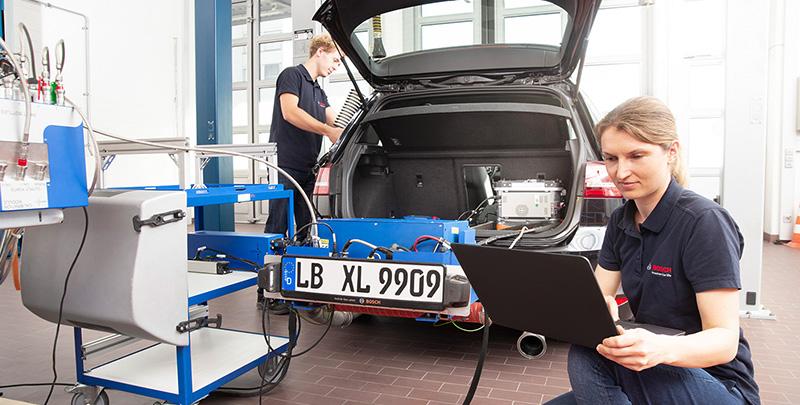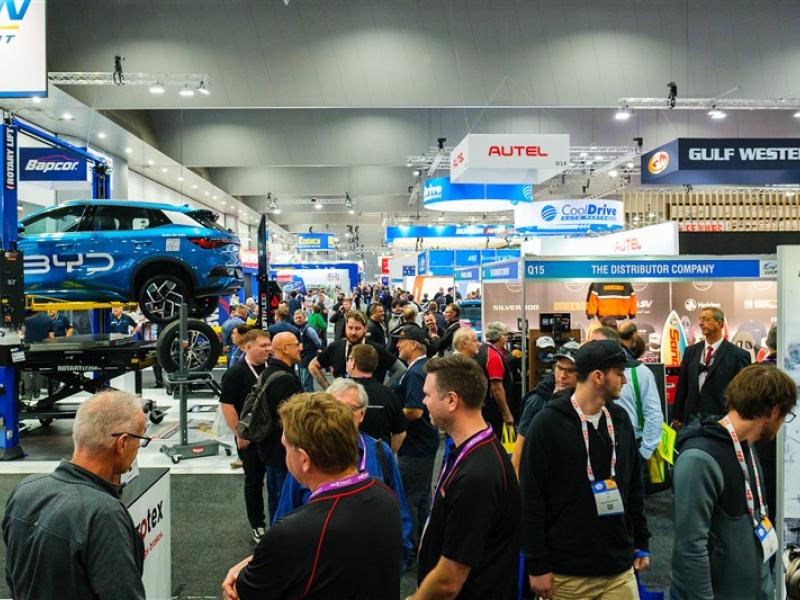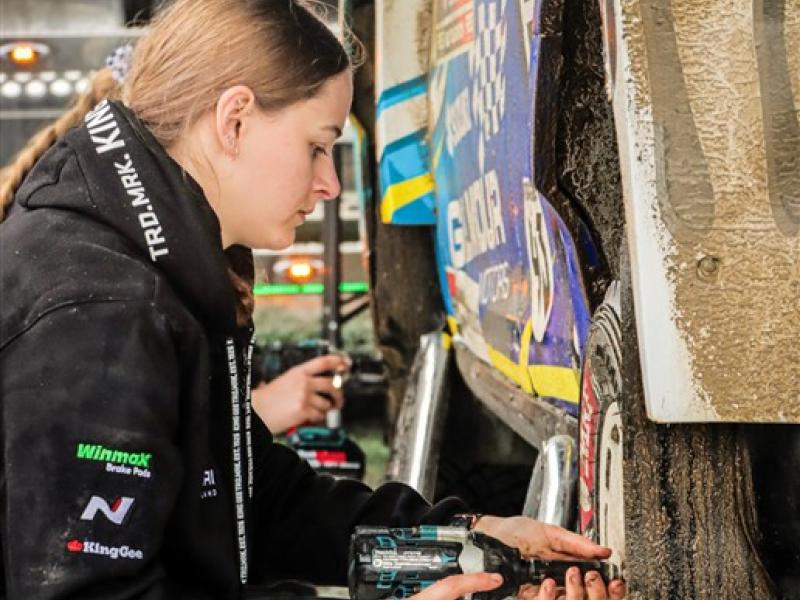Bosch has turned the whole anti-diesel debate on its head with news that it has developed technology which cuts NOx emissions to a tenth of the levels required by 2020 legislation, making “emissions no longer an issue”.
Speaking at the company’s annual Press conference in Germany, Bosch CEO Volkmar Denner said: ““There’s a future for diesel. Today, we want to put a stop, once and for all, to the debate about the demise of diesel technology.”
He said new developments from Bosch could enable vehicle manufacturers to reduce emissions of nitrogen oxides (NOx) so drastically that they already comply with future limits.
Even in RDE (real driving emissions) testing, emissions from vehicles equipped with the newly premiered Bosch diesel technology are not only significantly below current limits but also those scheduled to come into force from 2020.
And Bosch engineers achieved these results by refining existing technologies, with no need for additional components, which would drive up costs.
“Bosch is pushing the boundaries of what is technically feasible,” Denner said. “Equipped with the latest Bosch technology, diesel vehicles will be classed as low-emission vehicles and yet remain affordable.”
The Bosch CEO also called for greater transparency with regard to the CO2 emissions caused by road traffic, and called for fuel consumption and thus CO2 emissions to be also measured under real conditions on the road in the future. He also pointed to the “whole of lifecycle” cost of electric vehicles, calling for a levelling of the playing field when it comes to making comparisons between them and internal combustion engines in terms of their CO2 footprint.
Since 2017, European legislation has required that new passenger car models tested according to an RDE-compliant mix of urban, extra-urban, and freeway cycles emit no more than 168mg of NOx per km, and by 2020 this limit will be cut to 120mg.
But even today, vehicles equipped with Bosch diesel technology can achieve as little as 13mg of NOx in standard legally-compliant RDE cycles.
And even when driving in particularly challenging urban conditions, where test parameters are well in excess of legal requirements, the average emissions of the Bosch test vehicles are as low as 40mg/km.
What’s more, the Bosch breakthrough was achieved in just a few months, with Denner suggesting there may be still more to come with further development.
A combination of advanced fuel-injection technology, a newly developed air management system, and intelligent temperature management has made such low readings possible.
NOx emissions can now remain below the legally permitted level in all driving situations, irrespective of whether the vehicle is driven dynamically or slowly, in freezing conditions or in summer temperatures, on the freeway or in congested city traffic.
“Diesel will remain an option in urban traffic, whether drivers are tradespeople or commuters,” Denner said.
Bosch delivered proof of this innovative advance at a major press event in Stuttgart. Dozens of journalists, from both Germany and around the world, had the opportunity to drive test vehicles equipped with mobile measuring equipment in heavy city traffic, under especially challenging conditions.
As the measures to reduce NOx emissions do not significantly impact consumption, the diesel retains its comparative advantage in terms of fuel economy, CO2 emissions, and therefore climate-friendliness.
Even with this technological advance, the diesel engine has not yet reached its full development potential. Bosch now aims to use artificial intelligence to build on these latest advances. This will mark another step toward a major landmark: the development of a combustion engine that – with the exception of CO2 – has virtually no impact on the ambient air.
“We firmly believe that the diesel engine will continue to play an important role in the options for future mobility. Until electromobility breaks through to the mass market, we will still need these highly efficient combustion engines,” Denner said.
His ambitious target for Bosch engineers is the development of a new generation of diesel and petrol engines that produce no significant particulate or NOx emissions
Technical questions and answers on the new Bosch diesel technology
What distinguishes the new diesel technology?
To date, two factors have hindered the reduction of NOx emissions in diesel vehicles. The first of these is driving style. The technological solution developed by Bosch is a highly responsive air-flow management system for the engine. A dynamic driving style demands an equally dynamic recirculation of exhaust gases. This can be achieved with the use of a RDE-optimized turbocharger that reacts more quickly than conventional turbochargers. Thanks to a combination of high- and low-pressure exhaust-gas recirculation, the air-flow management system becomes even more flexible. This means drivers can drive off at speed without a spike in emissions. Equally important is the influence of temperature. To ensure optimum NOx conversion, the exhaust gases must be hotter than 200 degrees Celsius. In urban driving, vehicles frequently fail to reach this temperature. Bosch has therefore opted for a sophisticated thermal management system for the diesel engine. This actively regulates the exhaust-gas temperature, thereby ensuring that the exhaust system stays hot enough to function within a stable temperature range and that emissions remain at a low level.
When will the technology be ready for production?
Bosch’s new diesel system is based on components that are already available in the market. It is available to customers effective immediately and can be incorporated into production projects.
Why is urban driving more demanding than extra-urban or freeway driving?
To ensure optimum NOx conversion, the exhaust gases must be hotter than 200 degrees Celsius. This temperature is often not reached in urban driving, when cars are stuck in gridlock or stop-and-go traffic. As a result, the exhaust system cools down. Bosch’s new thermal management system remedies this problem by actively regulating the exhaust gas temperature.
Does the temperature regulation require an auxiliary 48-volt heater installed in the exhaust-gas system or additional components of a similar kind?
Bosch’s new diesel system is based on components already available in the market and does not require an additional 48-volt on-board electrical system.
Will the new Bosch technology make the diesel engine significantly more expensive?
The Bosch diesel technology is based on components already in use in production vehicles. The decisive advance comes from a new combination of Page 5 of 5
existing technology. It does not require any additional hardware components. So reducing emissions will not make diesel vehicles any less affordable.
Will the diesel engine lose its comparative advantage in fuel economy and climate-friendliness as a result of the new technology?
No. Our engineers’ goal was clear: to reduce NOx emissions while retaining the diesel’s comparative advantage in terms of CO2 emissions. Diesel will thus remain a climate-friendly option.






